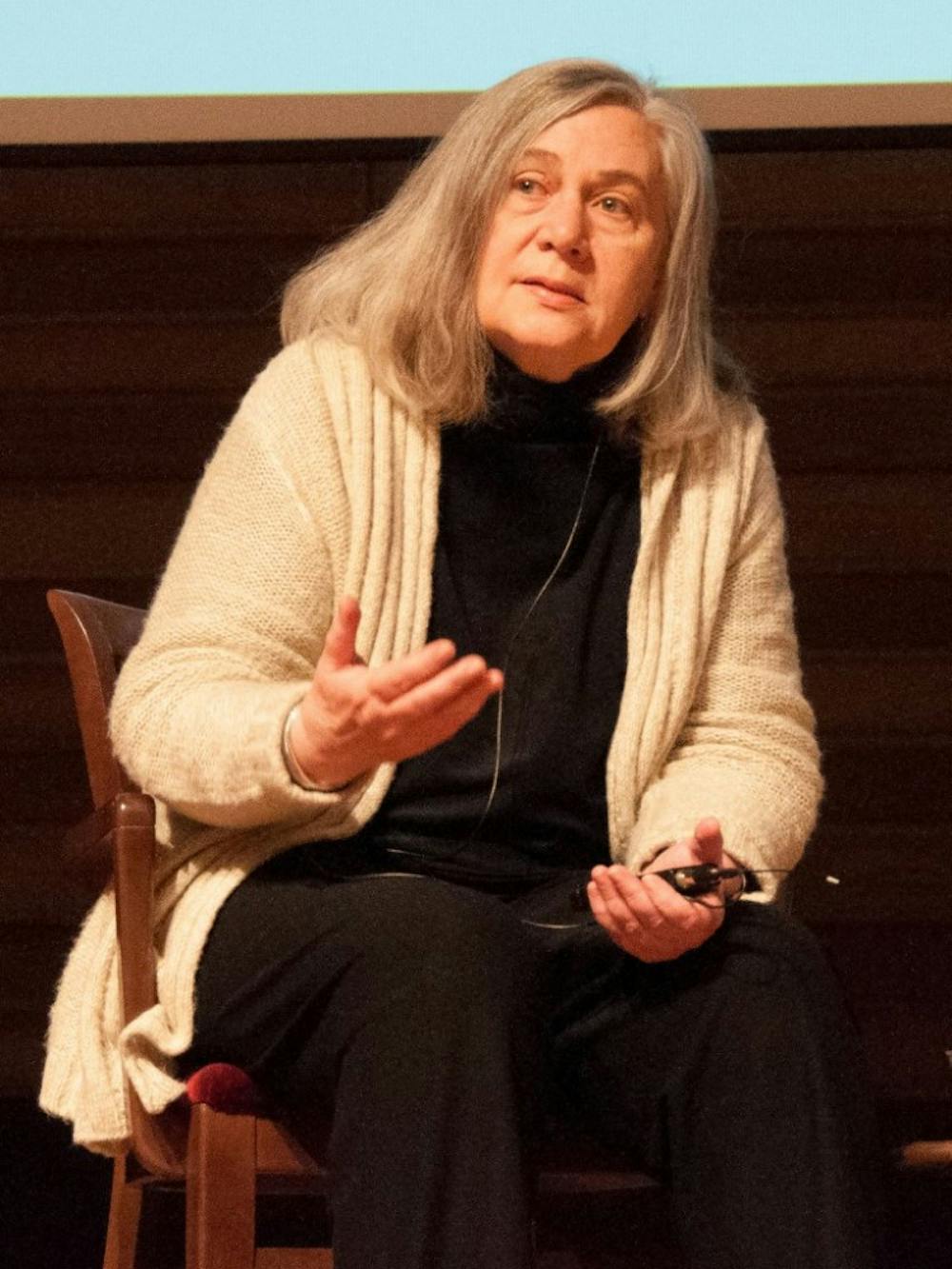Marilynne Robinson, an award-winning American author, held a reading as a part of the President’s Reading Series: Literature of Social Import this past Thursday. This event was held in the large lecture hall of Hodson and included a reception and book signing after.
Robinson was born and grew up in Standpoint, Idaho. She received a B.A. from Pembroke College, Brown University’s former women’s college, and a Ph.D. in English from the University of Washington in 1977. She currently teaches at the esteemed University of Iowa Writers’ Workshop and lives in Iowa City.
She has written four acclaimed novels, Housekeeping, Gilead, Home and, most recently, Lila. Her first novel, Housekeeping, which was focused on three generations of women, was written in 1980. The rest of her work was written more recently, with Lila released in 2014.
She has won several awards for her work including the Pulitzer Prize and the National Humanities Medal, awarded to her by President Obama in 2012. When awarding her this prize, Obama commented on “her grace and intelligence in writing.”
At Thursday’s reading, Robinson read from two of her novels, Lila and Gilead. Both of these novels are a part of the Gilead trilogy, which centers on the life of the Reverend John Ames who lives in Gilead, Iowa.
Though Gilead was published first, the novels are not in chronological order. Gilead is a fictional autobiography of the Reverend as he reflects upon his life after discovering that he is dying of a heart condition. Lila, on the other hand, focuses on the blossoming of the Reverend’s relationship with a drifter woman named Lila.
Robinson carefully chose sections from both novels to read. From Lila, she first read a passage about the Reverend visiting Lila as she’s weighing her decision to marry him. Robinson read the scene softly, truly accentuating the musical, flowing nature of her writing.
She mirrored this pensive tone in her reading of Gilead, where she also chose an critical scene. In her reading from Gilead, she focused on an interaction between the Reverend and the son of another reverend who has left the town in disgrace.
Though the readings were generally very reflective, there were moments of humour. These lighter moments were as equally appreciated by the audience as the more serious elements of Robinson’s writing.
One audience member, sophomore Holly Tice, commented about the event and Robinson’s work.
“I decided to come to the event after reading Lila,” she said. “That book basically changed my life, and it was so incredible to hear Robinson’s thoughts on it.”
Another student present at the reading, junior Katie Dwyer, expressed her excitement in hearing the author read from her popular novels.
“It was such a thrill to hear Marilynne Robinson read her work,” Dwyer said.
This sentiment appeared consistent across the audience. The lecture hall, which can seat about 400 people, was nearly full, and the audience listened intently. Both the reading and the response period afterwards were well-received by the diverse audience.
This event was free and open to both members and visitors of the Hopkins community. From students to professors, there was a wide range of people present, making the event very popular.
The reading was followed by a question and answer period in which audience members questioned Robinson on a variety of topics from theology to the underlying subtleties in her writing to the lives of her characters.
One audience member also asked about Robinson’s two meetings with President Obama, to which she replied with a number of compliments about his manners and his presidency.
While this event closes the President’s Reading Series, there are still many graduate student readings presented as a part of the Tudor & Stuart Reading Series on Wednesdays at 7 p.m. in Krieger 205.





